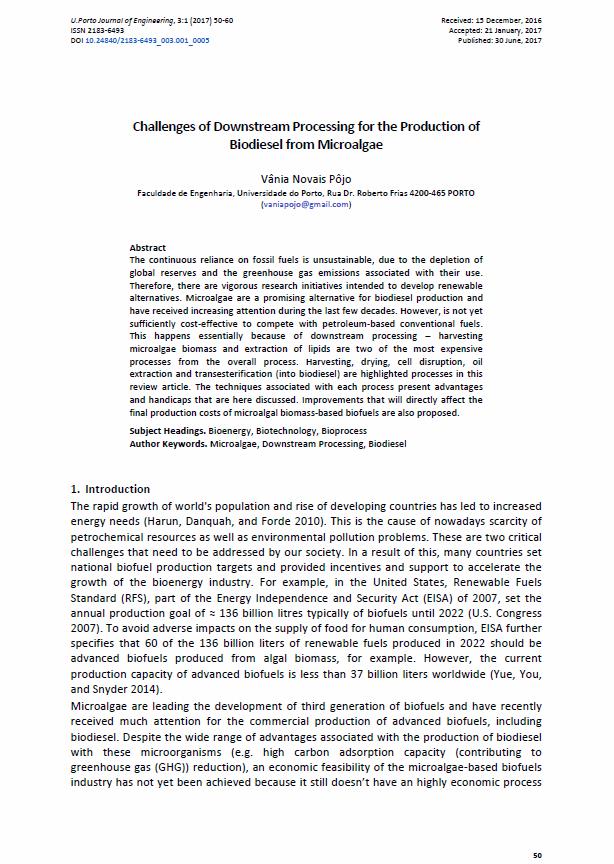Challenges of Downstream Processing for the Production of Biodiesel from Microalgae
Main Article Content
Abstract
The continuous reliance on fossil fuels is unsustainable, due to the depletion of global reserves and the greenhouse gas emissions associated with their use. Therefore, there are vigorous research initiatives intended to develop renewable alternatives. Microalgae are a promising alternative for biodiesel production and have received increasing attention during the last few decades. However, is not yet sufficiently cost-effective to compete with petroleum-based conventional fuels. This happens essentially because of downstream processing – harvesting microalgae biomass and extraction of lipids are two of the most expensive processes from the overall process. Harvesting, drying, cell disruption, oil extraction and transesterification (into biodiesel) are highlighted processes in this review article. The techniques associated with each process present advantages and handicaps that are here discussed. Improvements that will directly affect the final production costs of microalgal biomass-based biofuels are also proposed.
Downloads
Article Details
Authors who publish with this journal agree to the following terms:
- Authors retain copyright and grant the journal right of first publication with the work simultaneously licensed under a Creative Commons Attribution License that allows others to share the work with an acknowledgement of the work's authorship and initial publication in this journal.
- Authors grant the journal the rights to provide the article in all forms and media so the article can be used on the latest technology even after publication and ensure its long-term preservation.
- Authors are able to enter into separate, additional contractual arrangements for the non-exclusive distribution of the journal's published version of the work (e.g., post it to an institutional repository or publish it in a book), with an acknowledgement of its initial publication in this journal.
- Authors are permitted and encouraged to post their work online (e.g., in institutional repositories or on their website) prior to and during the submission process, as it can lead to productive exchanges, as well as earlier and greater citation of published work (See The Effect of Open Access).

